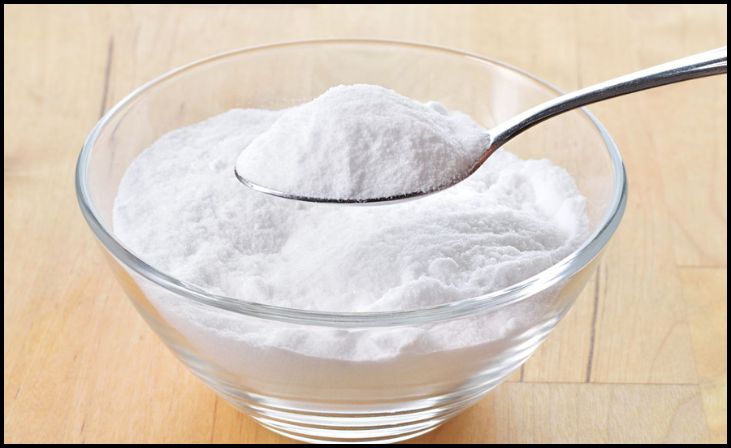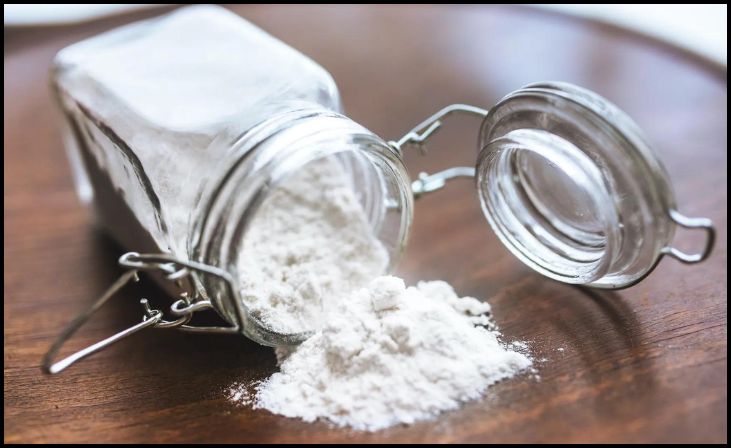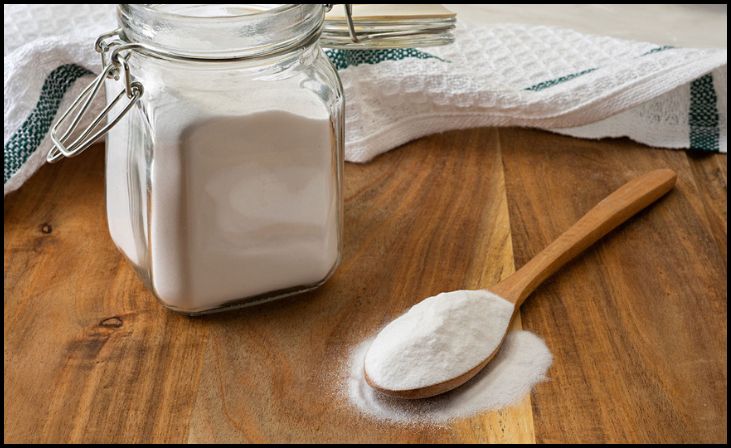Baking soda, a pantry staple found in most kitchens, isn’t just for baking. Its versatility extends beyond the realm of cooking into various household and personal care uses. While its culinary applications are well-known, its nutritional aspects often go unnoticed. Delving into the nutrition facts of baking soda reveals its surprising health benefits and potential uses beyond the baking aisle.
Sodium Content:

Baking soda, scientifically known as sodium bicarbonate, contains sodium, an essential electrolyte necessary for various bodily functions. However, it’s crucial to consume sodium in moderation, as excessive intake can lead to high blood pressure and other health issues. One teaspoon of baking soda contains about 1250 milligrams of sodium. Therefore, individuals on sodium-restricted diets should be mindful of their baking soda consumption.
Low Calorie Count:
For those watching their calorie intake, baking soda is a favorable choice. It is virtually calorie-free, containing only about 0.6 calories per teaspoon. This makes it an excellent option for adding flavor and leavening properties to recipes without significantly increasing calorie content. Incorporating baking soda into dishes can help reduce overall calorie intake while still enjoying flavorful meals.
Alkalizing Properties:
One of the most notable characteristics of baking soda is its alkalizing properties. When ingested, baking soda acts as a buffer against acids in the body, helping to neutralize pH levels. This alkalizing effect can have various health benefits, including reducing acid reflux, alleviating indigestion, and promoting overall digestive health. However, it’s essential to use baking soda in moderation to avoid disrupting the body’s natural pH balance.
Antacid Potential:

Baking soda’s alkaline nature makes it a popular home remedy for heartburn and acid reflux. When mixed with water, baking soda can help neutralize stomach acid, providing temporary relief from symptoms. However, it’s important to use this remedy sparingly and under the guidance of a healthcare professional, as excessive use of baking soda can lead to adverse effects such as electrolyte imbalance and metabolic alkalosis.
Source of Calcium:
While baking soda itself does not contain calcium, its consumption can indirectly contribute to calcium intake. By neutralizing acids in the body, baking soda may help preserve calcium stores in bones and prevent calcium depletion. Additionally, baking soda can enhance the absorption of calcium from foods, further supporting bone health. Incorporating baking soda into recipes can be beneficial for individuals seeking to maintain strong and healthy bones.
Potential Athletic
Performance Enhancer: Some athletes and fitness enthusiasts use baking soda as a performance-enhancing supplement. Baking soda supplementation, also known as sodium bicarbonate loading, is believed to improve exercise performance by delaying fatigue and buffering lactic acid buildup in muscles. However, research on the effectiveness of baking soda as an ergogenic aid is mixed, and its use should be approached with caution due to potential side effects such as gastrointestinal discomfort.
Cooking Aid for Healthier Recipes:

Beyond its nutritional benefits, baking soda can be a valuable cooking aid for creating healthier recipes. Its leavening properties allow for the reduction of added fats and sugars in baked goods, resulting in lighter, lower-calorie alternatives. Additionally, baking soda can be used to tenderize meats, enhance the texture of vegetables, and reduce the cooking time of legumes, making it a versatile ingredient for preparing nutritious meals.
Conclusion:
Baking soda, with its myriad of nutritional benefits and versatile applications, proves to be more than just a leavening agent. From its role in maintaining electrolyte balance to its potential as a natural antacid, baking soda offers various health-promoting properties. By understanding the nutrition facts and potential uses of baking soda, individuals can harness its benefits to support overall health and well-being both in the kitchen and beyond.



